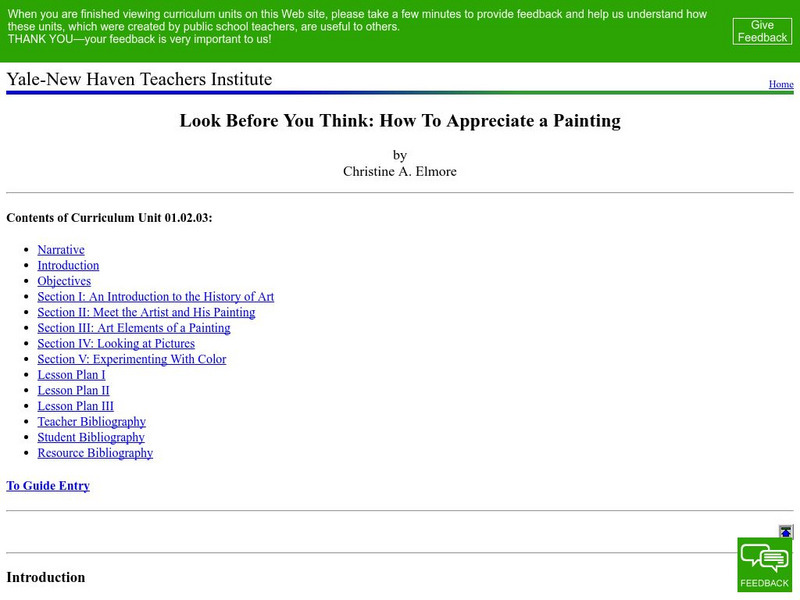Hi, what do you want to do?
ArtLex
Art Lex: Movement
This site from Artlex is a fantastic description of how movement is used in the creation of art. There are links to works of art in sculpture, painting and photography as well as focused interpretations of how different types of movement...
Other
Poway Unified School District: How to Analyze Art
This tutorial will lead you through the steps on how to view and understand art. Great for all ages.
ArtLex
Art Lex: Emphasis
A complete description of the term, "emphasis," with links to show how emphasis relates to art. Includes examples of work by Klimt, Demuth, and Minor.
ArtLex
Art Lex: Harmony
This site from Artlex provides a brief but effective definition of the Principle of Design known as Harmony. There are links to other terms within the definition as well as quotations by Cezanne, Seurat and Ingres.
Other
Career Foundry: The Key Principles and Steps of the Design Thinking Process
This guide explains the Design Thinking process - including where it comes from, why it's so valuable, what it's used for, the five stages of the Design Thinking process, and how to learn more about it.
Albright-Knox Art Gallery
Albright Knox Art Gallery: Natural Materials
Students will learn that artists like David Nash use natural materials such as wood to create works of art that incorporate principles of design such as balance, repetition, rhythm, and unity. They will collect their own natural...
Yale University
Yale New Haven Teachers Institute: How to Appreciate a Painting
Christine A. Elmore's curriculum unit designed "to facilitate her third-graders' enjoyment of and response to fine art." This unit can be applied to all age groups and provides an extensive background on art in general.
TeachEngineering
Teach Engineering: Mobile Forces
The application of engineering principles is explored in the creation of mobiles. As students create their own mobiles, they take into consideration the forces of gravity and convection air currents. They learn how an understanding of...









